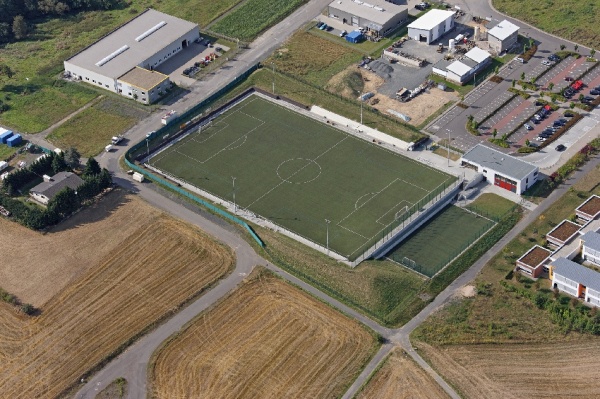Inspect First - Then Refurbish
In recent years, the number of artificial pitches used to practise sports has continued to increase, largely replacing old surfaces such as ...


YOUR FORUM FOR PLAY, SPORTS UND LEISURE AREAS

Reasons for this are often noise and dust protection problems in the existing facilities, but may also involve a sinking number of club members which results in several clubs being merged and relocated to new facilities in a different location.
Based on the fact that available funds cannot be used exclusively for renovation of existing or construction of new sports facilities, the factor of life-cycle is playing an increasing part in construction of sports grounds.
Implementation of new planning or renovation of sports facilities as public-private partnerships (PPP) will gain in importance in future as this not only allows use of alternative possibilities for financing of projects, but that advantages also exist with regard to care and maintenance of the resulting facilities. Even after the completion of construction work, maintenance of these facilities, mainly equipped with synthetic turf systems, involves very little outlay, as it is included in the service package of the constructor for a contract period of 20 or 25 years (including renovation of the surface).
Königswinter Oberpleis sports ground
In this way, the German city of Königswinter implemented the sports ground project Königswinter Oberpleis in 2006 and 2007 with a total investment volume of 1.2 million Euro (project volume including financing 2.5 million Euro). This involved a large playing field of the size 105 x 68 m and a smaller 20 x 40 m pitch on a strongly sloping area with a height difference of around 8 m per 150 m.
Following a cost-effectiveness study, which compared conventional realisation to a public-private partnership project, and consultation with the community authorities responsible, the Dr.-Ing. Fischer Consult engineering company was instructed to call for tenders from contractors for realisation of the sports facilities on the basis of an approved draft including complete realisation plans and a performance catalogue without quantity surveys. Due to the small size of the project, this was the only way to ensure that preliminary costs were kept as low as possible to prevent any efficiency advantages of the PPP project being nullified. In addition, it was necessary, in agreement with the responsible community authorities of the Rhein-Sieg district, to ensure that tenders received would be comparable to each other as in the conventional way and that the PPP advantages would be clearly recognisable.
As this project in 2006 was also the very first small PPP project in Germany, the call for tenders was made including the trick of reducing the established limit of the cost-effectiveness of the PPP project by 5 % and including the top price limit for the tendered annual fees for a contractual period of 20 years.
In this way, a 5-percent cash-benefit advantage was practically guaranteed for the PPP project right from the start. During the call for tenders itself, it became apparent from the results themselves, and also from the higher-quality secondary offers, that the cash benefit would be as high as 15% for the whole contract period. The project was completed in May 2007 and has been in operation ever since. Already during the construction period it was clear that the commissioned company, STRABAG Sportstättenbau GmbH from Dortmund, Germany, had significantly higher quality expectations with regard to its own performance. In addition, since the facilities have been operational it has been clearly visible that the STRABAG Company has kept itself up to date regarding use of the facilities through regular visits and that it provides help and support towards optimisation of maintenance work carried out by the sports club.
This project provided a jump start for the city of Königswinter to initiate five further PPP projects regarding renovation of school buildings and swimming baths as well as construction of a new town hall and a fire brigade equipment depot.
Sportpark Süd Niederkassel
Based on this call for tenders, the Dr.-Ing. Fischer Consult GmbH was also awarded planning of the sport facilities Sportpark Süd in the German town of Niederkassel-Rheidt. The advisory services provided, which included life-cycle factor and turnover in a PPP project, motivated the town of Niederkassel to take this approach, with the limitation however, that they reserved the right to implement the most economical alternative (either conventional or PPP) received during the call for tenders.
For this reason, an ABC tendering procedure was developed together with the advising lawyers office, Busse & Miessen, Bonn. Starting from the cost-effectiveness point of view, this procedure included the possibility of dividing the sports park into three lots. Lot 1 involved construction of the facilities, lot 2 the financing and lot 3 its maintenance over a period of 20 years,whereby it was possible to award one, two or all three lots to one tendering party.
Based on this tendering procedure, which required very precise details to allow comparison of the different tenders, it could be shown that construction of the facilities could be carried out with the greatest cost-effectiveness with a total investment volume of 4.5 million Euro (total volume 9 million Euro) in a PPP project (all three lots). The efficiency advantage provided by this procedure was 11.2%.
The facilities, which included 3 synthetic turf sports fields with a “Type C” competition athletics track, changing rooms with 800 m2 floor space and parking space for 250 cars as well as comprehensive outdoor facilities covering an area of 10 ha, were built in 2007 and 2008 by the company Sport StadiaNet GmbH from Düsseldorf. Here again, construction was carried out on the basis of complete realisation planning provided by Dr.-Ing. Fischer Consult engineering company with performance catalogue, but without quantity survey.
Along with complete construction of the facilities, service components included building maintenance for 20 years, replacement of the sports surfaces at least once during the period of contract and maintenance of the outdoor facilities also for a period of 20 years. Even though construction work was hampered by difficult ground and weather conditions, the facilities were completed and opened punctually in spring of 2008. Since then the facilities have been in operation without any limitations worth mentioning.
Schlosspark Stadium, Brühl
On the basis of a feasibility study carried out in autumn 2007, which was intended to illustrate the renovation potential of the stadium, the possibility of realisation as a PPP project was also looked into.
This involved adaptation of the somewhat conflicting targets of renovation, noise protection and conservation of listed buildings. At the same time the new stadium was to be modernised and equipped with a competition level “Type B” athletics track with synthetic surface, a natural grass pitch with floodlighting system, a smaller synthetic turf pitch, comprehensive field and track facilities and easily maintained spectator seating for 3000 people including changing rooms, storage areas and toilet buildings.
Here again an ABC tendering procedure was planned in order to allow the Brühl town authorities to make their choice based on the cost-effectiveness comparison. In this case however, three different total lots were formed either as a PPP tender (construction, financing and maintenance) or alternatively as partial PPP tender (construction and maintenance without financing) or alternative C (construction alone), from which after the comparison, only one lot was awarded.
The result of the call for tenders shows that here also, awarding of all services to the STRABAG Sportstättenbau GmbH from Dortmund presented the most economical solution with a total cash benefit of more than 8.7%. Construction of the stadium was carried out from October 2008 until July 2009 and the inauguration took place in August 2009. During the opening event and the following U17 international football match in the DFB series U17-Jugendturnier (Germany won against Cyprus 4 : 0) the efficiency of the Brühl Schlosspark Stadium was easily apparent with more than 3000 spectators present at these events.
Sports facilities of the Jüchen community
A fourth call for tenders in a PPP process was also carried out in 2008 in the community of Jüchen using the same parameters as for the Schlosspark stadium in Brühl. Unfortunately the publication ran in autumn of 2008 and submission of tenders took place around 2 weeks after the global financial crisis. The results of the publication show that for the financing, the banks made a margin surcharge on the pure financing costs of between 1 and 1.5% (normally between 0.2 and 0.3%) as they themselves had no way of estimating further developments in the money markets. In combination with the fact that one of the tenders for construction in the conventional process included an additional 4% discount, this meant that the cost-effectiveness comparison balanced out in favour of conventional project realisation by around 1%.
Outlook
As community financial funds in general have become somewhat limited over the last two years, and also as the life-cycle approach has now become a established significant value in the realisation of construction projects, it must be expected that over the next years many sport facility projects will be implemented as PPP projects. The PPP approach, however, is also subject to continual change. In this way, the main project components planning, construction, interim loans, financing, building maintenance and project work, will be carried out in the most efficient or economical way. The main way of thinking will be that whoever can best handle a risk, should be the one responsible for it.
For example, during renovation work where it is possible that conservation of listed buildings is involved, it is better to allocate the planning risk to the awarding authority, while the decisive influence of the construction company on the construction time indicates that bridging loans should be handled by them alone. Particularly with smaller projects this ensures that not only the awarding authorities, but also the bank are pushing towards punctual completion of the project.
The city of Königswinter has also shown that when awarding their projects, they do not simply select according to the “building brick” principle, but that exceptional possibilities, such as inclusion of subsidies, a location competition or, in the years 2010/11, inclusion of funds from German federal business activity support programmes (KP-II), can also be included in the PPP tendering procedure in a flexible way